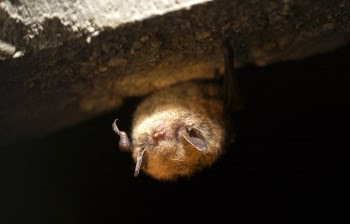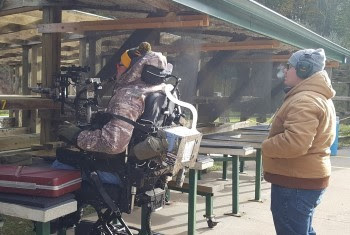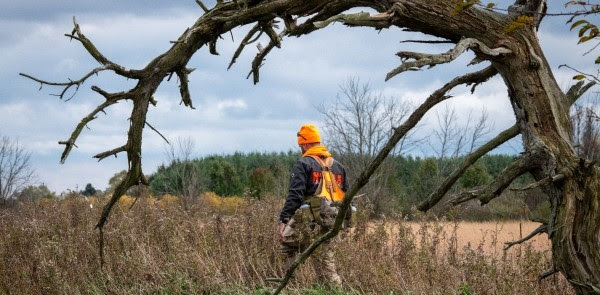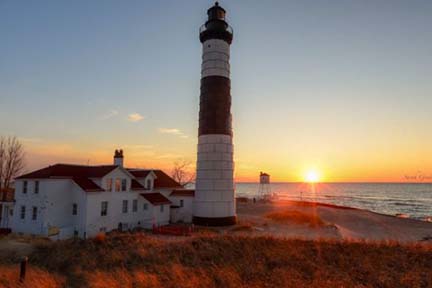| Here are just a few of this week’s stories from the Michigan Department of Natural Resources:
See other news releases, Showcasing the DNR stories, photos and other resources at Michigan.gov/DNRPressRoom.
PHOTO FOLDER: Larger, higher-res versions of the images used below, and others, are available in this folder.
 Want to see more pictures like this, taken by Michigan state parks photo ambassador Ashish Phansalkar at Ludington State Park in Mason County? Visit Instagram.com/MiStateParks to explore photos and learn more about the photo ambassadors! For more on the photo ambassador program, call Stephanie Yancer at 989-274-6182. Want to see more pictures like this, taken by Michigan state parks photo ambassador Ashish Phansalkar at Ludington State Park in Mason County? Visit Instagram.com/MiStateParks to explore photos and learn more about the photo ambassadors! For more on the photo ambassador program, call Stephanie Yancer at 989-274-6182.
 Just in time for Halloween, it’s Bat Week! Whether it’s building bat habitat, learning more about different bat species, bat-watching in the late hours of dusk or other ways to brush up on bats, this international celebration (Oct. 24-31 each year) is the perfect time to spotlight this important species. Just in time for Halloween, it’s Bat Week! Whether it’s building bat habitat, learning more about different bat species, bat-watching in the late hours of dusk or other ways to brush up on bats, this international celebration (Oct. 24-31 each year) is the perfect time to spotlight this important species.
Michigan is home to nine species of bats, all of which are insectivores – meaning they eat exclusively insects. During the evening hours, these flying mammals consume many insect pests including mosquitoes, beetles, moths and flies.
Unfortunately, many bat species are facing challenges. The DNR, along with numerous partners, works to conserve bats and bat habitat because many species are in decline due to habitat loss, diminished food supply and disease.
White-nose syndrome is a deadly disease that affects North American bats primarily during their winter hibernation and has devastated many bat species. Infected bats prematurely awaken from hibernation, rapidly deplete their fat reserves and do not survive the winter. Bats with this disease often exhibit unusual behavior, like flying during daylight hours or gathering outside of hibernacula (mines and caves) in cold weather.
Here are a few things you can do to help bats:
- Plant a bat-friendly garden and minimize the use of insecticides.
- Remove invasive species.
- Install a bat house in a location not frequented by people.
- Do not enter closed mines.
- Follow decontamination guidelines to help reduce the spread of white-nose syndrome.
Learn more about bats and ways you can take action during Bat Week – and all year long – at BatWeek.org.
Find more information on Michigan’s bat species and ways to help at Michigan.gov/Bats.
Questions? Contact the DNR Wildlife Division at 517-284-9453. |
 With the Nov. 15 start of firearm deer season right around the corner, now is the time for hunters to ensure safe and successful hunts by sighting in their firearms and practicing their shot. With the Nov. 15 start of firearm deer season right around the corner, now is the time for hunters to ensure safe and successful hunts by sighting in their firearms and practicing their shot.
A great place to do that? DNR shooting ranges around the state.
“Our eight staffed shooting ranges in southern Michigan offer a fun, safe shooting environment with customer-friendly and highly trained employees,” said Dennis Fox, DNR Recruitment and Retention Section manager. “They feature amenities like handgun, rifle, shotgun and archery ranges and restroom facilities.”
The staffed ranges are located in Clinton, Ingham, Jackson, Lapeer and Oakland counties. The DNR also operates several unstaffed shooting ranges in Allegan, Grand Traverse, Hillsdale, Montmorency and St. Clair counties.
Both the staffed and unstaffed ranges have accessible features for visitors with disabilities.
The DNR Ortonville, Pontiac Lake, Rose Lake and Sharonville shooting ranges are open six days per week through the end of October (closed Tuesdays) and seven days per week Nov. 1-15 (including Election Day and Veterans Day). To help hunters prepare for firearm deer season, these ranges are also offering extended weekend shooting hours Oct. 29-30, Nov. 5-6 and Nov. 12-13.
Find hours, locations and more information about DNR shooting ranges – and for those who aren’t near a DNR range, a listing of all shooting ranges around the state – at Michigan.gov/ShootingRanges. |
|




 Want to see more pictures like this, taken by Michigan state parks photo ambassador
Want to see more pictures like this, taken by Michigan state parks photo ambassador  Just in time for Halloween, it’s Bat Week! Whether it’s building bat habitat, learning more about different bat species, bat-watching in the late hours of dusk or other ways to brush up on bats, this international celebration (Oct. 24-31 each year) is the perfect time to spotlight this important species.
Just in time for Halloween, it’s Bat Week! Whether it’s building bat habitat, learning more about different bat species, bat-watching in the late hours of dusk or other ways to brush up on bats, this international celebration (Oct. 24-31 each year) is the perfect time to spotlight this important species.
 With the Nov. 15 start of firearm deer season right around the corner, now is the time for hunters to ensure safe and successful hunts by sighting in their firearms and practicing their shot.
With the Nov. 15 start of firearm deer season right around the corner, now is the time for hunters to ensure safe and successful hunts by sighting in their firearms and practicing their shot.